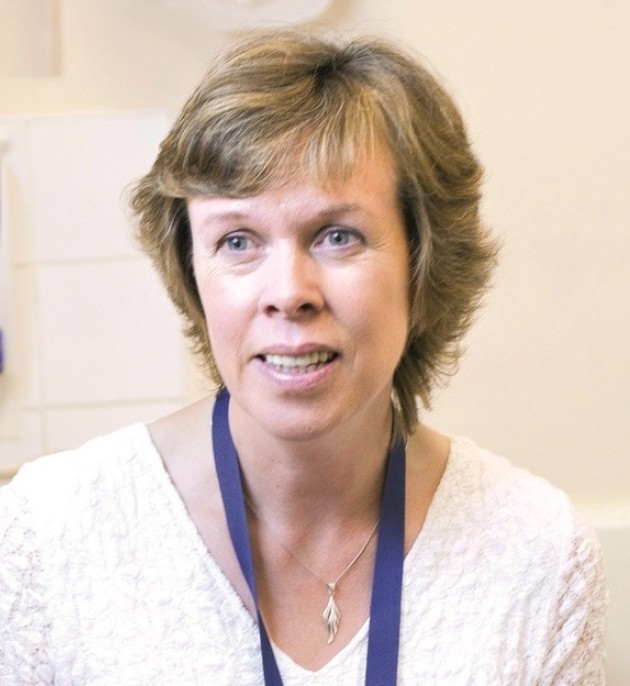NUTRITION AND CANCER
 How did you get into research?
How did you get into research?
When I started working as a dietitian at St Bartholomew’s Hospital I had an opportunity to be involved in a research study being carried out by the gastroenterology department looking at dietary fibre and gut function. I analysed the dietary records of medical students in the study (which was interesting) and preferable to analysing the results of digestion! It gave me a glimpse into research in action. When I joined The Royal Marsden I helped on a research study looking at hormone levels in women following a low fat diet, which involved advising participants on making the appropriate dietary changes, supporting them and analysing their dietary intake. I was delighted to be included on the research paper and this gave me the incentive to look into doing my own research.
What do you enjoy about research?
The thing I most enjoy about research is how it changes the way in which we practice in our clinical setting. I always look for research questions that have a direct clinical relevance. Having critical evaluation skills is great for developing my own research questions, as well as evaluating published research to support the way we work.
What was the most difficult aspect of doing your PhD?
I worked on my PhD whilst managing the Department of Nutrition and Dietetics. It was a huge challenge doing research and working full time in a demanding job. I nearly stopped on several occasions, but fortunately the support of my manager and supervisor resulted in me completing my thesis.
What difference has your research training and experience made to your career?
My research training and experience enabled me to apply for the role of Consultant Dietitian. Allied Health Professional consultant roles require the person to have skills in clinical practice, leadership, education and research so it was the final link in enabling me to obtain the role I aspired to. Consultant posts were quite new at the time so it was exciting to be able be one of the early leaders.
How has research changed your clinical practice?
There have been some very tangible aspects of how research has changed my clinical practice, the nutrition screening tool we use in the Trust was developed and validated through a research study I led in the hospital. Perhaps the most important aspect is how research influences the way in which I deliver clinical practice – from writing for The Royal Marsden Manual of Clinical Nursing Procedures and the Royal Marsden Cancer Cookbook, to developing policies, care plans and patient information.
What has made a difference to progressing your research career?
I am part of the NIHR Cancer and Nutrition collaboration which aims to promote and encourage research on this topic. Being part of this research community has been a great opportunity to obtain advice, support and encourage others to think about nutrition. The Royal Marsden and Institute of Cancer Research Biomedical Research Centre (BRC) supports me to put this into practice. This, along with some successful PAN London research fellowships, has made a significant difference to developing research ideas and having the time to bring along some early career researchers.
Where do you see your clinical academic career going over the next five years?
It is an exciting time to consider cancer and nutrition research. Increasingly people are realising the importance of nutrition to optimise the tolerance to cancer treatment. I see my future career being focused on collaborating both within the Royal Marsden and Institute of Cancer Research BRC and with other BRCs and hospitals to answer questions that will impact clinical decisions. I also love supporting and encouraging early career researchers as this is both rewarding and helps to develop our future workforce.
Clare Shaw, Consultant Dietitian and Lead for Therapy Research at The Royal Marsden NHS Foundation Trust and Lead for the NIHR Cancer and Nutrition Collaboration at the Royal Marsden / Institute of Cancer Research BRC - clare.shaw@rmh.nhs.uk
To download Clare's case study please click here: Clare Shaw: Case Study (PDF)
Useful links
Contact us
The CATO Team and Radiographers Incubator work on a Hybrid model, combining days in the office with days working from home – the best way to reach us is by email.
cato@imperial.ac.uk
radresearch@imperial.ac.uk
+44 (0)20 3313 7397

